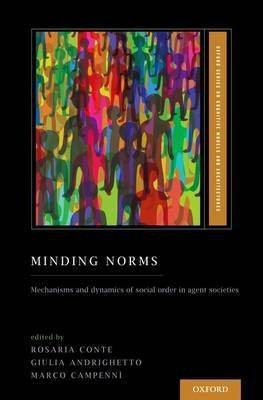Minding Norms(English, Hardcover, unknown)
Quick Overview
Product Price Comparison
Norms are prescribed conducts applied by the majority of people. Getting across cultures and centuries, norms evolved to rule all human relationships, from the most formal to the most intimate. Impinging on any sphere of life, from religious to political, norms affect social, moral, and even aesthetical behaviours. They are enforced through centralized sanctions or distributed control, and originate through deliberate acts of issuing or from spontaneous interaction in informal settings. Despite ubiquity and universality, norms are still awaiting for a general comprehensive theory, simultaneously doing justice to three intuitions: that, under variable contents, norms correspond to a common notion; that, once brought about, norms feedback on their producers, affecting their conducts; and finally that before and in order to drive the behaviours of individuals, norms must affect their beliefs and goals: people must detect and accept norms before converting them into observable behaviours.This volume presents an unprecedented attempt to account for all the three intuitions at once, providing a systematic view of norms. Based on a unitary and operational notion of norms, as behaviours spreading thanks to and to the extent that the corresponding prescriptions spread as well, a cognitive architecture, EMIL-A, which is the main output of a research project on norm emergence, is described. EMIL-A is a BDI-like platform for simulation, endowed with modules for detecting, reasoning and deciding upon norms. Next, the EMIL-A platform is applied to generate norms in different simulated scenarios (from a multi-setting world to a virtual Wikipedia), through a complex bidirectional dynamics, i.e., the bottom-up emergence of norms thanks to a gradual, top-down process, denoted as immergence. As simulations results show, norms emerge while immerging in agents' minds, thanks to their detecting, reasoning, and deciding whether to respect them or not.


